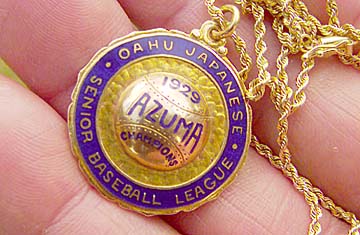

![]()
Kokua Line


![]()
Kokua Line
Insurance in flood zones
required by federal lawQuestion: Our townhouse in Ewa Beach is located in the flood zone area, according to our property managing agent. He informed us that state law requires that we have coverage for flood insurance.
For many years, before he took over as property manager in 1994, we never did have to purchase flood insurance. We talked to the other homeowners of townhouses across the street and found out that their property managing agent told them they don't have to have flood insurance.
Can you clarify what the law says for homeowners (townhouse) living in an area considered a "flood zone area" and how we can get a waiver from this flood insurance requirement?
Answer: Federal, not state, law mandates flood insurance coverage in areas designated as flood zones.
In Hawaii, the state Department of Land and Natural Resources determines if a property is in a flood zone, based on Federal Emergency Management Agency flood insurance rate maps, said Sterling Yong, DLNR's head of flood control and dam safety and the national flood insurance coordinator for Hawaii.
Each county has its own flood zone coordinator. To find out if your property is within a flood zone, Yong said to call the City and County of Honolulu's Department of Planning and Permitting, 523-4247, and ask for a flood zone determination. You need to provide your tax map key parcel number.
Meanwhile, the only way to get flood insurance waived is if you can prove the flood maps are incorrect or if, for example, your home is built on a knoll or rises above other properties and flood waters would not reach your house, Yong said.
He pointed out the burden of proof is on the property owner and would entail hiring a surveyor, paying an application fee, and sending the documentation to the Federal Emergency Management Agency in San Francisco for review and approval. It would be a costly endeavor, but "that's the only way to do it," he said.
Asked if it would be possible that a townhouse on one side of the street would be in a flood zone and another on the opposite side would not, Yong said yes.
"It depends on how the flood lines are drawn," and they are drawn based on flood studies and hydraulic data. "If no flood or engineering study was done, they would use historical data or high-water marks from previous floods" as a gauge for determining the base flood elevation, he said.
Congress established the National Flood Insurance Program in 1968. If a community does not participate in the program, flood insurance will not be available to its residents, Yong said.
In return for low-cost federal flood insurance to be available in Hawaii, the four counties are obligated to establish a flood ordinance by which to manage development in flood plains, Yong said. That means that wherever there is a flood plain as designated by FEMA's flood insurance rate maps, the counties must restrict development to keep people out of harm's way, he said.
"My job as the state national flood insurance coordinator is to act as the liaison between the federal government and the counties, to ensure (the counties) comply with the rules and regulations for the flood insurance program. I'm like the watchdog over them," Yong said.
He also noted that before financial institutions will issue a mortgage for a home in a flood zone, they also will require flood insurance, based on the federal mandate.
As of Feb. 28, 2002, there were 41,149 flood insurance policies in effect in the state, with a total premium of $12,697,834 paid by policyholders, Yong said.
In Honolulu, there are 25,389 flood insurance policyholders, with total annual paid premiums of $7,351,324; Maui, 10,423 policies, with $2,637,564 in premiums paid; Kauai, 2,669 policies, with $1,449,110 in premiums paid; and Big Island, 2,668 policies, with $1,259,836 in premiums paid.

|
Q: Recently, when we were doing a general house-cleaning to dispose of unwanted articles, I found a gold pendant of the 1929 champion Azuma team of the Oahu Japanese Senior Baseball League. On the back are the inscriptions "E. Hioki ss capt." The pendant was probably given to one of my relatives, but we would like to return it to someone in Mr. Hioki's family for its sentimental value. Can you help?A: If any Kokua Line reader is related to or knows of E. Hioki, please call 529-4773 and leave a message and contact number. We'll put you in touch with the person who has the pendant.
Mahalo
To Marlo, who kindly came to our aid when our tire exploded as we were driving on the H-3 Freeway on Monday, May 27. It was very difficult for my 80-year-old husband, and hundreds of cars passed us until Marlo stopped.His wife/girlfriend Brandy lifted items out of the trunk and moved the tires while Marlo changed the front tire very fast and efficiently. It was a dangerous and difficult task, as the car shook each time a car zoomed by and there was little space for him.
After he got the spare on and we went slowly on our way toward Kaneohe, lo and behold, we saw Marlo helping another white-haired man in a big van that had broken down. I don't know his last name, but he drove a blue Nissan pickup truck. Thank you, Marlo! -- No Name
Mahalo
To Lois for giving my husband and me a ride to the ceremony at the Veteran's Cemetery on Memorial Day. We really appreciate her courtesy. -- Elizabeth
Got a question or complaint?
Call 529-4773, fax 529-4750, or write to Kokua Line,
Honolulu Star-Bulletin, 500 Ala Moana Blvd., No. 7-210,
Honolulu 96813. As many as possible will be answered.
E-mail to kokualine@starbulletin.com